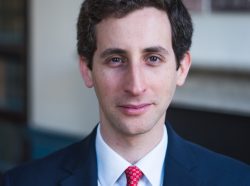As part of the package of public health measures implemented to combat the coronavirus pandemic, the Secretary of State for Health and Social Care made the Health Protection (Coronavirus, Restrictions) (Self-Isolation) (England) Regulations 2020, which require any person notified of a positive test for coronavirus and close contacts of such persons to “self-isolate” for specified periods. The Regulations were made under section 45C of the Public Health (Control of Disease) Act 1984.
In R (Francis) v Secretary of State for Health and Social Care [2020] EWHC 3287 (Admin), the Divisional Court dismissed a challenge to the Regulations, advanced on the basis that the Secretary of State had no lawful power to make them. In particular, it was argued that because the Regulations imposed a duty to self-isolate, they were a measure which kept a person in “isolation or quarantine” within the meaning of section 45G(2)(d). If that were so, the Secretary of State had no power to impose such measures by regulations, and only justices of the peace could do so in individual cases: see section 45D(3). The Secretary of State argued that the Regulations were a restriction on where a person may go and with whom he has contact within the meaning of section 45G(2)(j) and therefore intra vires.
In a detailed judgment of Hickinbottom LJ (Whipple J concurring), the claim was dismissed and it was held that the Regulations were not ultra vires. The Court accepted that the concept of isolation or quarantine required some element of clinical support or management, which the concept of self-isolation under the Regulations did not.
In addition, the Court also dismissed arguments that the Regulations were a measure which removed a person to and/or detained a person in a “suitable establishment” within the meaning of section 45G(2)(b)-(c). Hickinbottom LJ held that the Regulations did not amount to a detention, applying the reasoning of the Supreme Court in R (Jalloh) v Secretary of State for the Home Department [2020] UKSC 4. Although a constable may remove a person who is supposed to be self-isolating to the place where they are doing so, this did not transgress section 45G(2)(b) because the home was not a relevantly suitable establishment in the absence of clinical support measures.
The judgment is available here.
Christopher Knight acted for the Secretary of State for Health and Social Care, instructed by the GLD.








